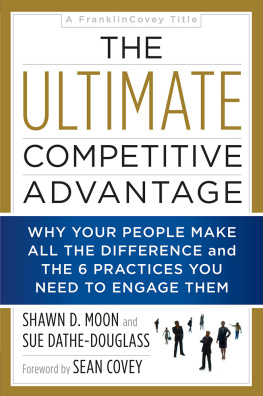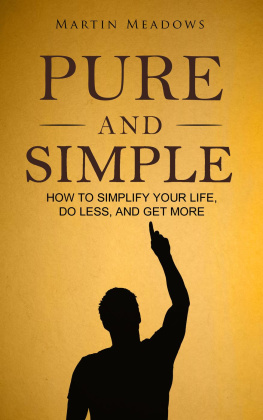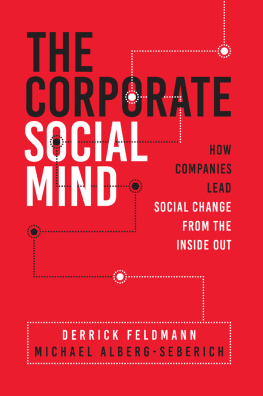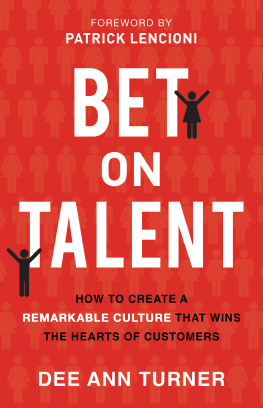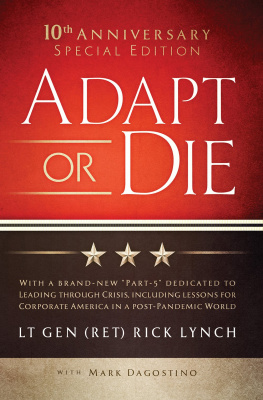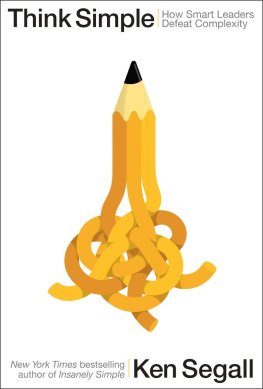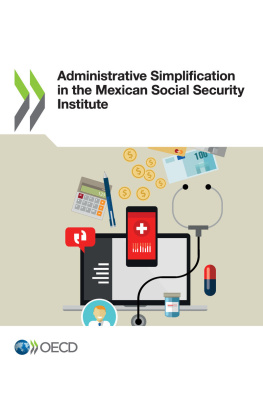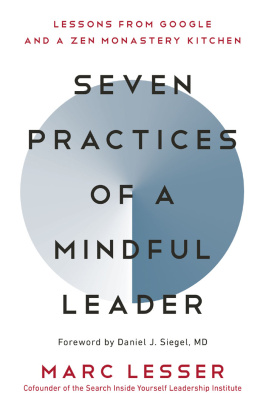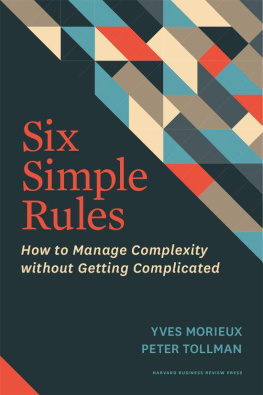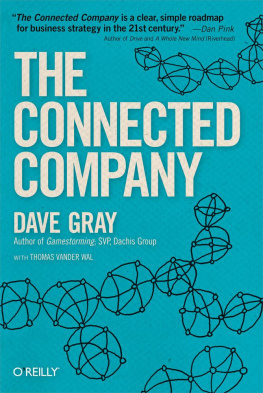Praise for
Why Simple Wins
and Lisa Bodell
Why Simple Wins makes a compelling case against the scourge of complexity. Lisa Bodell shows that simplification can be the competitive advantage of our time, helping us to be more innovative, more adaptable, and better positioned to thrive and truly have an impact.
Arianna Huffington, author of
Thrive and The Sleep Revolution
Americans work among the longest hours of any advanced economy. Were time starved, busy, burned out, and disengaged at work. But far from throwing up her hands in despair, Lisa Bodell uses compelling real world stories, eye-popping statistics, and practical hands-on tools to show how work itself has become too complex and how simplifying can help reclaim whats gotten lost: time for work that matters. Why Simple Wins is a must-read for twenty-first century workplaces.
Brigid Schulte, award-winning journalist and author of the
New York Times best-seller Overwhelmed: How to Work,
Love, and Play When No One Has the Time and
director of the Better Life Lab at New America
Once again, Bodell hits the bullseye; this time with Why Simple Wins. She presents a compelling case that complexity is killing organizationsbacked up with stone-cold dataand then delivers practical and effective tools to enable leaders to make simplification a habit. True to her message, Bodell conveys it all through the use of storytelling.
Camille Mirshokrai, Managing Director, Leadership
Development and Succession Planning Accenture
WHY
simple
WINS
WHY
simple
WINS
Escape the Complexity Trap and Get to Work That Matters
LISA BODELL

First published 2017 by Bibliomotion, Inc.
711 Third Avenue, New York, NY 10017, USA
2 Park Square, Milton Park, Abingdon, Oxon OX14 4RN, UK
Bibliomotion is an imprint of the Taylor & Francis Group, an informa business
Copyright 2017 by Lisa Bodell
All rights reserved. No part of this publication may be reproduced in any manner whatsoever without written permission from the publisher, except in the case of brief quotations embodied in critical articles or reviews.
ISBN-13: 978-1-62956-129-5 (hbk)
CIP data has been applied for.
To Lindsey, who fills me with joy.
To Jack, who warms my heart.
To Brian, who calms my mind.
Thank you for always reminding me that its the
simplest pleasures in life that matter.
I love you all very much.
Contents
Its 8 a.m., and as Mike McCall merges onto a traffic-choked highway heading into work, he thinks about how unsatisfying his job has become. Its not the long hoursas a VP of product management at a global technology company, he expects to work hard. Its how little headway he believes hes making. Every morning, he shows up at work hoping to move the ball forward, yet despite ten hours or more of solid effort, he constantly leaves feeling as though he got nothing done.
As an example: for more than a week, Mike has come to work early with a single, critical must-do on his agenda: developing a long-term product strategy to meet the revised growth targets set for his business unit. Business hadnt been going as well as expected, and plans had to change. His unit hadnt contributed the sales it had expected, and management had to find new channels for growth immediately. Strategic insight is why Mike was hired and where he knows he can really add valueas the boss tells him, given how increasingly competitive their market is, he needs to think big and think ahead. But despite his best efforts, Mike continually gets swept up in a tornado of unnecessary or overly complicated tasks. How much strategizing did he get done this week? Zero.
The previous day, much of Mikes time was swallowed up withwait for itunproductive meetings. Five minutes into a morning project meeting, it became apparent that he had no reason at all to be there. His colleague had invited a number of people to provide status updates on a project, but the updates easily could have been provided via e-mail, saving everyones time. Later, in a milestone meeting for a new technology his business unit was implementing, the manager leading the project spent most of the two-hour session bringing people up to speed (the meeting agenda was vague, so her colleagues had come ill prepared). When the meeting started running over time, several people had to leave, and the group wound up adjourning before there was a chance to recap next steps and timelines.
During ten-minute breaks between meetings, Mike tried to cope with the endless flood of e-mails in his inbox. With direct reports spread out across five countries, hed been receiving e-mails at all hours of the day and night. In fact, this morning he had seventy e-mails in his inbox from the night before. An additional hundred or more e-mails came in during the course of the day: requests from customers and the product support team; updates and requests from sales, marketing, and finance; numerous announcements from human resources and the executive team; and a whole slew of FYIs.
After scrolling through the list to determine which messages were truly urgent (not just marked that way) and which could wait, he started to tackle the most important ones first. He knew he could get through several that afternoon while on conference calls; multitasking while on mute was the new normal. No wonder half the time people on these calls asked speakers to repeat things theyd said; they werent really listening because they were trying to keep up with other tasks.
Around lunchtime, Mikes colleague Jim stopped by to tell him that, based on recent lower sales projections, senior management was asking for a reduction in development expenditures for several of the upcoming product releases. New numbers had to be submitted in three days. Mike pulled up the most recent product road map and began e-mailing his direct reports to get input on what to cut. He couldnt compile the numbers himself; he needed to loop in several colleagues in multiple time zones. Those in Europe and the Middle East had already left for the day, so he had to call them at home. The Asian markets would be up soon and would see his e-mail.
Mike compiled what he could, which took nearly two hours. He then called Jonathan, the product development lead on his product, to loop him in. Mike knew Jonathan would resist cutting anything because the new release was already so far along. Mike felt exhausted from constantly being so reactive; he wished he could think about costs more thoroughlyalternative strategies, pricing optionsbut there wasnt time.
For most of the afternoon, Mike worked to get the new numbers. Toward the end of the day, he saw an e-mail from human resources informing everyone about an updated hiring policy. While Mike had already received approval to hire three new managers for his team, the new policy required him to submit a revised requisition form that included new compliance information before an offer could be made. Just the day before, Mike had finished interviewing a great candidate and planned to make an offer right away, knowing that this candidate had a competing offer. Now, if Mike didnt quickly resubmit the required forms and get approvalagainby the end of the week, his candidate would likely take the other offer and Mike would have to start all over. Mike took an hour to fill out the form and e-mail it to the required people. By that time, it was after 6 p.m., so he said good-bye to his colleagues and headed for home.


